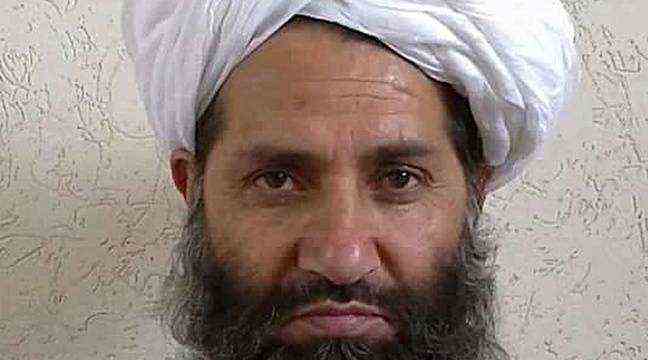While several Taliban leaders have made their public entry into Kabul since taking power in Afghanistan on August 15, their supreme leader, Hibatullah Akhundzada, remains invisible. Yet he would find himself in
kandahar cityTaliban spokespersons said on Sunday.
“He has been living there from the start,” said Taliban spokesman Zabihullah Mujahid, his deputy saying for his part that the dignitary would appear “soon in public”.
A role that is more symbolic than operational
This mullah, a specialist in judicial and religious issues, came out of anonymity in May 2016 to lead the Islamist movement, which was then in the grip of internal strife. He was appointed a few days after the death of his predecessor, Mansour, killed by an American drone strike in Pakistan, with the main objective of reuniting the Taliban. They had fractured in a violent struggle for power after the death of Mansour and the revelation that they had hidden for years that of their founder, Mullah Omar. Little is known about the daily role of Haibatullah Akhundzada, whose communication is limited to rare annual messages on the occasion of Islamic holidays. For many analysts, it is more symbolic than operational.
The Taliban released only one photo of him. He never made a public appearance. The son of a theologian, originally from Kandahar, the heart of the Pashtun country in southern Afghanistan and cradle of the Taliban, this scholar already enjoyed great influence in their midst even before his appointment as their head. He ran their legal system. Since regaining power in Afghanistan two weeks ago, twenty years after being ousted by a US-led coalition, the Taliban have remained completely silent on its recent activities and movements.
A life of “recluse”
In contrast, leaders of various Taliban factions have appeared publicly in Kabul in recent days, preaching in mosques, chatting with opposition figures or even meeting with representatives of the cricket federation. The Taliban have always had a habit of leaving their supreme leader in the shadows. The group’s founder, Mullah Omar, led a hermit life and rarely went to the Afghan capital when the movement was in power in the 1990s. He preferred to stay in hiding at his home in Kandahar and only met with the dignitaries who visited him reluctantly. But his word was sacred and none of his successors inspired the same respect within the movement.
According to Laurel Miller, the head of the Asia program of the International Crisis Group, Hibatullah Akhundzada “seems to have adopted a similar recluse lifestyle”. But this discretion could also be dictated by security reasons, to prevent him from knowing the fate of his predecessor Mansour, observes Laurel Miller. “A Taliban spokesman said their leader would appear soon and he might have reasons to do so to silence rumors of his death,” she added. “But it is also possible that after showing himself, he will withdraw again and exercise his authority in an isolated manner, as Mullah Omar did”, she considers.
Preserving the balance between factions
For years, rumors have been circulating in Afghanistan and Pakistan about the fate of Hibatullah Akhundzada who, according to them, could in fact have contracted Covid-19 or even have been killed in a bombing. These rumors have never been substantiated by any concrete evidence. But the silence of their leader can only challenge at such a crucial time for the Taliban, who will now have to demonstrate that they are capable of governing. The Taliban movement is made up of a multitude of factions from various places in Afghanistan and representing people with different aspirations.
When news of Mullah Omar’s death broke in 2015, it sparked a brief power struggle within the group and resulted in at least one major faction splitting up. When it comes to exercising power, after 20 years spent at war, the Taliban will have to take care to preserve the balance between their different factions, with varied interests. Any power vacuum could destabilize a movement which, under the action of Hibatullah Akhundzada, has managed to keep its cohesion, despite the death of thousands of its fighters, and the assassination or transfer to the American prison of Guantanamo of some. of its most senior officials. For other analysts, however, this man is simply waiting to show that all US and foreign troops have left Afghanistan, which will be effective on August 31.

